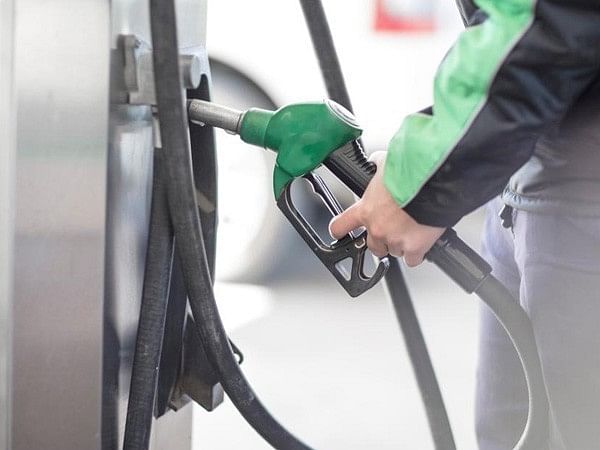Islamabad [Pakistan], June 16 (ANI): For the third time in 20 days, Pakistan has increased fuel prices by up to 29 per cent and eliminated fuel subsidies in the country, according to local media.
Country’s Finance Minister Miftah Ismail made the announcement on Wednesday, saying that the move is to reduce the fiscal deficit and revive loan support from the International Monetary Fund (IMF), Dawn newspaper reported.
At present, the cost of petrol will witness an up by PKR 24 and diesel by PKR 59.
Ismail blamed the previous government that froze prices for months and the challenging global market conditions for leaving no other option for the country.
Dawn News reported that the prices of high-speed diesel (HSD), petrol, kerosene, and light diesel oil (LDO) have gone up by a massive 83pc, 56pc, 73pc, and 68.4pc respectively, since May 26.
On Wednesday Ismail announced that the ex-depot price of high-speed diesel (HSD) has been fixed at PKR 263.31 per litre, jumping 83 per cent since May 26 from PKR 144.15 per litre.
The price of petrol jumped to PKR 233.79 from PKR 209.86 per litre, increasing by 56 per cent from PKR 149.86 per litre before May 27.
The price of kerosene has been fixed at PKR 211.43 per litre, jumping 73 per cent since May 26 from PKR 118.31 per litre.
Also, the ex-depot price of light diesel oil has been set at PKR 207.4 per litre, increasing 68.5 per cent from PKR 125.56 per litre in May.
Since the Shehbaz Sharif government has come to power in Pakistan, the daily essentials are getting costly and have become out of reach of the common man due to recent hikes in petrol prices and power tariffs, a local media report stated.
Miftah further said that despite the fuel hike causing inflation and misery, it was a tough decision to make amidst the hike in fuel prices in the international market and exchange rates. Subsidised fuel prices were constantly increasing the fiscal deficit, thereby increasing pressure on the country’s foreign exchange reserves, reported Dawn.
“We will only be able to control fuel prices when our difficult period ends and the country’s relations with global financial institutions improve,” he said as quoted by the publication. (ANI)
This report is auto-generated from ANI news service. ThePrint holds no responsibility for its content.



